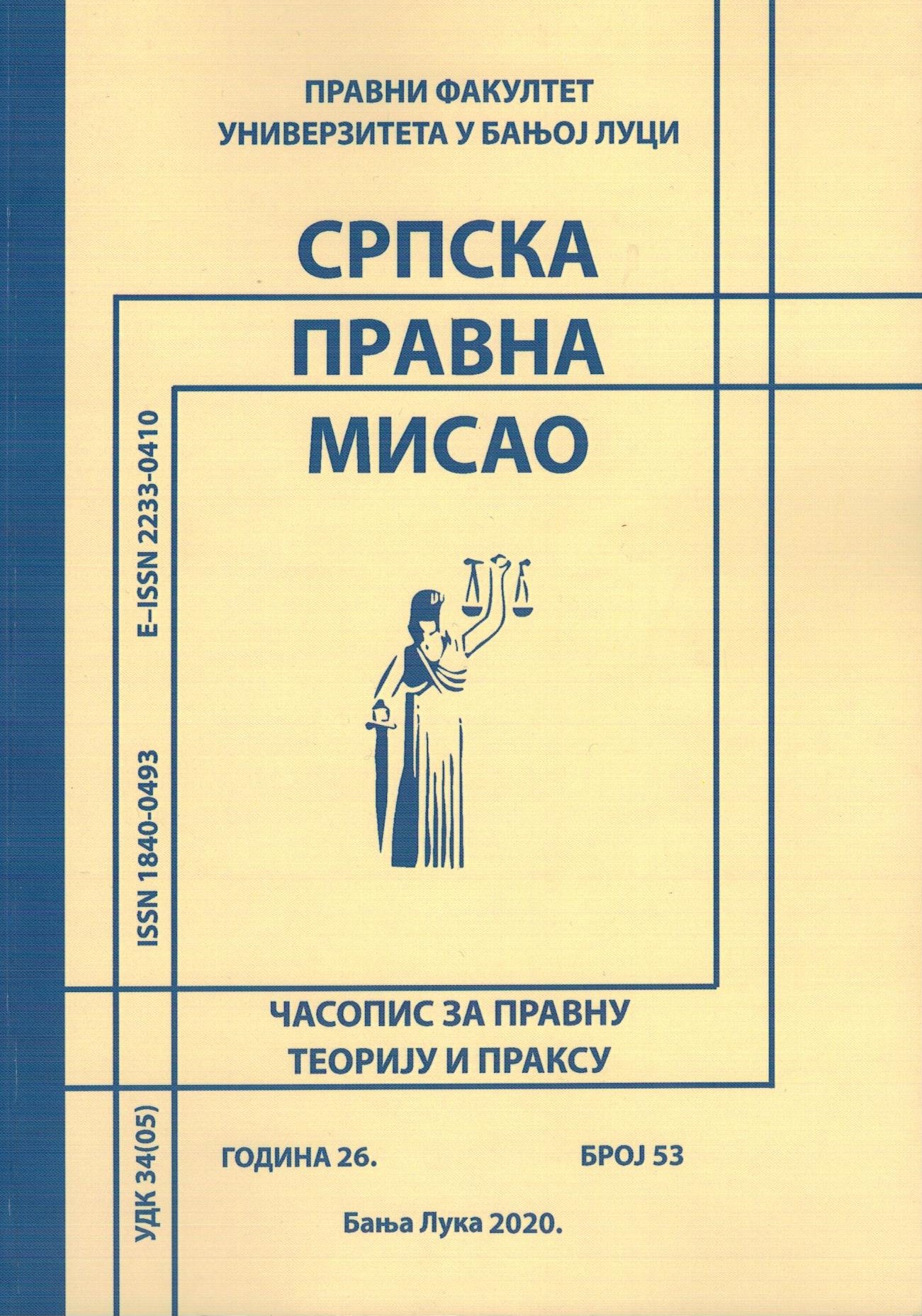КРИТИЧКИ ОСВРТ НА РЕФОРМУ КРИВИЧНОГ ЗАКОНОДАВСТВА У ОДНОСУ НА КАЗНУ ЗАТВОРА У РЕПУБЛИЦИ ХРВАТСКОЈ И РЕПУБЛИЦИ СРБИЈИ
CRITICAL REVIEW OF CRIMINAL LEGISLATION REFORM IN RELATION TO THE SENTENCE OF IMPRISONMENT IN CROATIA AND SERBIA
Author(s): Vanda Božić, Marina M. SimovićSubject(s): Law, Constitution, Jurisprudence, Criminal Law, Civil Law, International Law, Human Rights and Humanitarian Law
Published by: Правни факултет Универзитета у Бањој Луци
Keywords: imprisonment; life imprisonment; long-term imprisonment; reform of criminal legislation; Republic of Croatia; Republic of Serbia;
Summary/Abstract: Abstract: In the paper, the authors investigated and presented a comparative analysis of criminal legislation reform, in relation to the sentence of imprisonment in Croatia and Serbia. Although both Croatia and Serbia are obliged to harmonize their criminal legislation with EU legislation and international documents, we see that the solution of their legislators considerably different. With the new amendments to the Criminal Code of the Republic of Serbia in 2019, the so-called Tiana's law, effective from December 1 last year, imposed a sentence of life imprisonment, which has met with fierce controversy in scientific and professional circles. Life imprisonment included until then the maximum prison sentence of 30 to 40 years in prison. On the other hand, the Croatian Criminal Code in its provisions prescribe long-term imprisonment which may not be shorter than twenty-one or longer than forty years, since it was introduced life imprisonment novels of the Criminal Code of 2003 did not survive. We also find a distinction between the sentence of prison between legal provisions of the Criminal Code of Serbia and the Criminal Code of Croatia. The minimum sentence of imprisonment that can be imposed on a convicted person according to the Criminal Code of Serbia is thirty days and the maximum sentence of imprisonment is twenty years in prison. In relation to Croatian Criminal Code, the distinction is reflected in the special minimum of the legal provision for sentence of imprisonment, which, according to the criminal legislation of the Republic of Croatia, cannot be less than three months, which means that the special minimum for the sentence of imprisonment is three times higher in Croatia than in Serbia. In addition to an analysis of the legal provisions of the criminal legislation of Croatia and Serbia relating to the imposition of imprisonment, the possible proposals that should be taken into account are outlined. The paper also examines convictions that have imposed prison sentences in Croatia and Serbia, and provides a comparative analysis and presentation of the sentences imposed is given.
Journal: Српска правна мисао
- Issue Year: 2020
- Issue No: 53
- Page Range: 129-142
- Page Count: 13
- Language: Serbian

